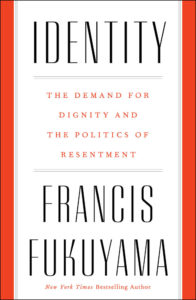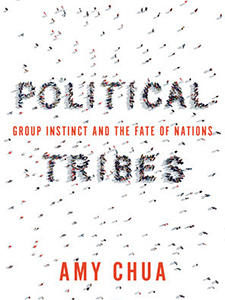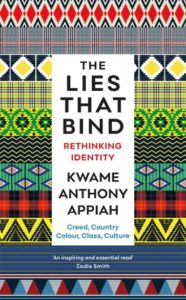 If there is a single lesson to be learned from the contemporary Middle East, it is that national identity is critical to the success of any political system. That identity needs to be liberal and inclusive, encompassing a country’s de facto diversity. But it also needs to be substantive, argues Francis Fukuyama, the Olivier Nomellini senior fellow at Stanford University’s Freeman Spogli Institute for International Studies (FSI) and the Mosbacher director of FSI’s Center on Democracy, Development, and the Rule of Law.
If there is a single lesson to be learned from the contemporary Middle East, it is that national identity is critical to the success of any political system. That identity needs to be liberal and inclusive, encompassing a country’s de facto diversity. But it also needs to be substantive, argues Francis Fukuyama, the Olivier Nomellini senior fellow at Stanford University’s Freeman Spogli Institute for International Studies (FSI) and the Mosbacher director of FSI’s Center on Democracy, Development, and the Rule of Law.
Such was the “creedal” identity that had evolved in the U.S. by the late 20th century: America was not to be defined by race or ethnicity but by political ideas such as loyalty to the Constitution, the rule of law and belief in the fundamental law of human equality, he writes for The Hill.

Identity politics is a valid response to discrimination but, as identities multiply, the politics of each group collides with the politics of all the rest, The Economist adds:
Instead of generating useful compromises, debate becomes an exercise in tribal outrage. Leaders on the right, in particular, exploit the insecurity engendered by immigration as a way of whipping up support. And they use smug left-wing arguments about political correctness to feed their voters’ sense of being looked down on. The result is polarisation. Sometimes that leads to paralysis, sometimes to the tyranny of the majority. At worst it emboldens far-right authoritarians.
The causes of America’s resurgent tribalism are many, Yale Law School’s Amy Chua and Jed Rubenfeld write for The Atlantic:
They include seismic demographic change, which has led to predictions that whites will lose their majority status within a few decades; declining social mobility and a growing class divide; and media that reward expressions of outrage. All of this has contributed to a climate in which every group in America—minorities and whites; conservatives and liberals; the working class and elites—feels under attack, pitted against the others not just for jobs and spoils, but for the right to define the nation’s identity.
In these conditions, democracy devolves into a zero-sum competition, one in which parties succeed by stoking voters’ fears and appealing to their ugliest us-versus-them instincts, they add.
 Identity politics is pulling modern democracy apart, says Michael Ignatieff, president of Central European University, Budapest and author of ‘The Ordinary Virtues: Moral Order in a Divided World’.
Identity politics is pulling modern democracy apart, says Michael Ignatieff, president of Central European University, Budapest and author of ‘The Ordinary Virtues: Moral Order in a Divided World’.
The solution, which would truly take us out of the prison of identity politics and the false solution of meritocracy, would be to conscientiously ignore every identity marker — race, class, gender, credentials, the lot — and focus on temperament and character alone when we allocate status, power and prestige, he writes for The Financial Times:
Intransigent individualism of this sort — that consciously tries to see and value individuals separately from their group identities — might help us to get past the demands for recognition and reparation that divide us so deeply. We are a long way short of that utopia, but it is the one John Stuart Mill and Martin Luther King alike pointed us towards and it still feels like the right destination.
 “[O]ne of the tasks is to reconstruct an American national identity that is open to everybody, bound together on the basis of political principles — like the Constitution, like the rule of law, like the principle of equality and the Declaration of Independence,” Fukuyama tells NPR. “That’s the kind of constructed identity that we need as an antidote to the kinds of polarizing identities that our politics has fallen prey to.”
“[O]ne of the tasks is to reconstruct an American national identity that is open to everybody, bound together on the basis of political principles — like the Constitution, like the rule of law, like the principle of equality and the Declaration of Independence,” Fukuyama tells NPR. “That’s the kind of constructed identity that we need as an antidote to the kinds of polarizing identities that our politics has fallen prey to.”
A creedal identity can be fostered by the way we teach civics to young people, something that has been seriously neglected in our education system in recent decades. It could also be bolstered by a program of national service, based on the idea that citizens are not simply rights-bearers, but also have duties to support the common good, adds Fukuyama, a board member of the National Endowment for Democracy and the author of, “Identity: The Demand for Dignity and The Politics of Resentment.”
We now have a political spectrum organized increasingly around identity issues, many of which are defined more by culture than by economics narrowly construed, he adds – a shift that is not good for the health of liberal democracy. RTWT







